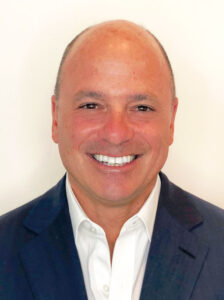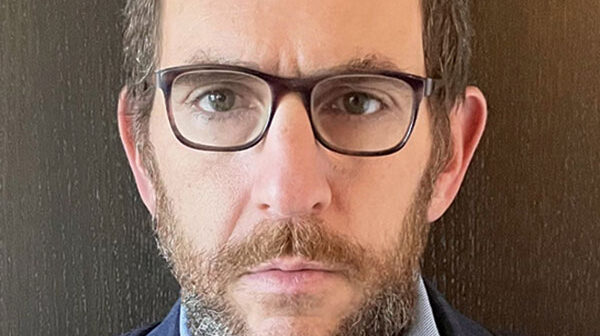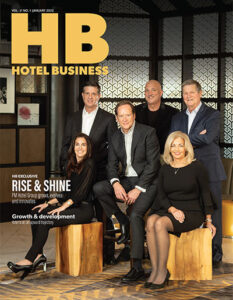Two former Goldman Sachs executives have formed Franchise Equity Partners (FEP), a portfolio company of investment funds managed by HPS Investment Partner LLC focused on partnering with successful owner-operators across the U.S. franchising sector with an initial target portfolio size of $1 billion.
Cofounders Scott Romanoff and Michael Esposito, who both serve as managing partners at the new firm, each spent nearly three decades at their previous company in various capacities in the Investment Banking Division. With FEP, they plan to make passive, permanent, minority equity investments alongside established owner-operators in five industry verticals: restaurants, automotive dealerships, beverage distributors, heavy machinery and other consumer and business services, which includes hotels, as well as health, beauty and fitness firms.
Romanoff, who said that hotel investments will make up between 10% and 25% of the portfolio, noted that the idea for the company came after Esposito started owning franchises of his own.
“As we were thinking about the next chapter of our career, we decided that the last thing the world needed was another financial institution’s generalist private equity fund, and we were not going to go down that path,” he said. “At the same time, Mike started to develop Jersey Mike’s subway shops and now owns several of them and has some more in the pipeline. Together, we realized that the QSR [quick-service restaurant] casual dining space was incredibly attractive from a financial return standpoint.

Scott Romanoff and Michael Esposito (above), two ex-Goldman Sachs executives, have formed Franchise Equity Partners.
He added, “It was something that neither of us had experienced in our professional careers, and we thought we were going to do something personally and, perhaps, put some of our own money to work and expand our activity there.”
Then, one former colleague who made it big as an automotive dealer and another whose family runs a larger beverage distribution company educated the two FSR cofounders in those industries.
“What we realized was there was a real commonality across all these businesses which was that they were franchise in nature, but they had this very tight quasi-parent relationship between franchisor and franchisee—factory, dealer, supplier, beverage distributor—and then you can extend that to the hotel space,” Romanoff said.
The cofounders realized the financial returns were just as “exciting” in those verticals as they were in the restaurant space, noted Romanoff, who added, “We then took it to the next level and said, ‘All right, when you step back, while there is some private equity involved in the restaurant space, there is really no organized form of institutional capital that can provide equity to these various sectors. And they are sectors that are incredibly vibrant and an important part of the U.S. economy.”
The reason for that, he said, was that the private equity model of “five to seven years, a lot of leverage and then needing to exit” is not friendly to the franchise-type model. “We then borrowed a bit from our financial institutions background, which was we looked at the theme in asset management around permanent capital and it’s been one of the more significant parts of the asset management expansion. That is rather than raising these funds that have investors who expect their capital to get turned every five to seven years. These are investors who lend you money on a permanent basis and they look for the attractive cash-on-cash yields from businesses that can benefit from permanent capital.”
There is a commonality between the verticals FEP will focus on, he pointed out, “such as the fact that a lot of those businesses are closely held, their family owned, often for multiple generations—and they either are left with a choice of selling and exiting, or having the vast majority of their family’s net worth tied up in these businesses.”
FEP’s investment model is a good fit for family-owned franchised businesses where the next generation takes over.
“Like every place else in the U.S. economy, there is significant intergenerational wealth transfer happening, and there’s often parts of the family that don’t want to participate in that or want to go their own way,” said Romanoff. “There’s estate planning and succession planning that happens. There’s no access to capital. And, finally, some people just want to diversify. They just want to take some money off the table and create a family office and the like.”
In the private equity space, he pointed out that, only a few companies have emerged that are providing minority equity stakes in the form of permanent capital, “where there is no fixed exit and can basically provide equity to effectively illiquid businesses.”
“We thought that was just a great opportunity and a ton of green space where we can provide equity capital to sectors that don’t normally receive it,” he added. “There are some key elements to the activities that are very consistent with the U.S. economy and we could be that capital source.”
FEP’s ultimate strategy is based on three principles; it wants to have a minority stake (less than 49%), be a passive investor and team up with best-in-class operators.
“We have a lot of deal experience and we know how to get transactions done,” said Romanoff. “As a [joint-venture] partner, rather than just a complete control investor or an exit, making sure the foundations of a deal are done right are really important because you’re going to be living with the person who’s on the other side of the initial transaction.”
Romanoff and Esposito plan on bringing on operating partners for each of the five verticals to help bring value to the company’s portfolio. Those partners will be experts in their respective industry; for example, Mark LaNeve, former president of Volvo NA, is partner/chairman of the automotive vertical. They have yet to find an operating partner for the vertical that covers the hotel industry.
“We’ve found a few folks with experience in the industry that we’ve yet to formalize with,” said Romanoff. “We’re gonna have best-in-class operating partners who know the industry, have credibility with the industry to make sure we add value and our due diligence processes are best in class. At the end of the day, we don’t want to be an operator. We want the operator to remain the operator, and we want to be passive and financial in our approach, and that obviously will influence who we choose as the operating partner.”
Romanoff is optimistic about his new venture. “We are obviously very focused on executing the first phase in front of us, but we think if we do this right, we can be the trusted provider of minority, permanent capital across five core verticals to the U.S. economy,” he said. “We see ourselves over time as developing an expertise and a reputation where, as people look to consolidate, look to keep their companies in the family or look to actually diversify, they’re gonna want to come to us as a partner.”


